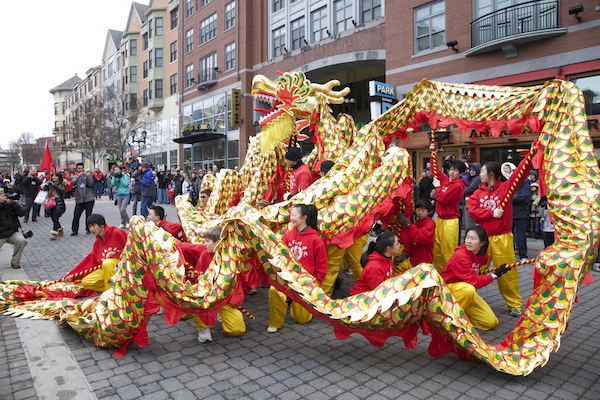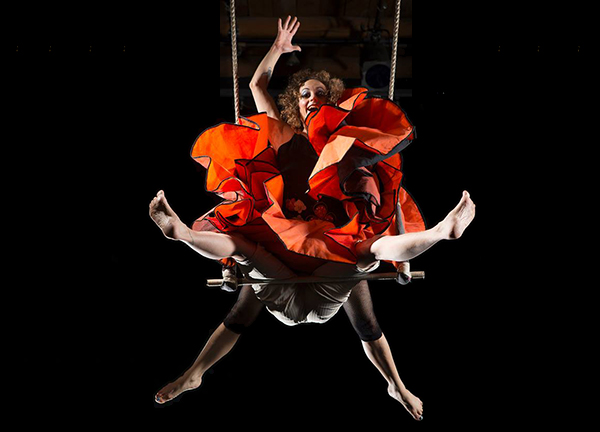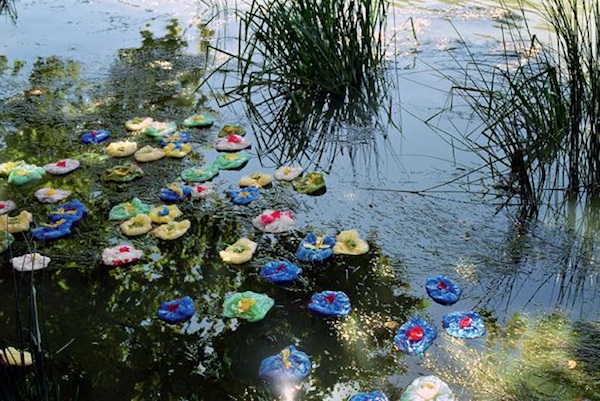Today is Imbolc, the first day of Spring, one of the four Celtic seasonal holidays that fall on the calendar mid-points between the equinoxes and solstices. Like most Pagans, I honor Brigid, the Goddess associated with: the water of holy wells, the hearth fire, the fertile earth of Spring and mental air energy needed to create poetry. She also offers needed protection. But what does Brigid have to do with the Chinese Dragon? To answer this question, first keep in mind this Asian mythological character is benevolent, protective, and inspiring— quite the opposite of the Western Dragon. In China and around the world where Chinese have settled, the Dragon’s appearance is the highlight of community gatherings. Chinese New Year is the most important holiday for Chinese worldwide. It falls on the new moon between January 21st and February 20th. This year Chinese New Year is February 8. On the West Coast of the United States where I live, the Chinese Dragon plays a prominent public role, and not just for the Chinese community. Parades and diverse events draw massive crowds of varied lineages. During this festival season, which lasts from the New Moon to the Full Moon, a spectacular 268-foot […]
Continue reading... →Organic Matters, the fourth installment in NMWA’s Women to Watch exhibition series, explores the relationships between women, nature, and art. Women to Watch is presented every two to three years and is a dynamic collaboration between the museum and participating outreach committees.
Continue reading... →


